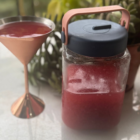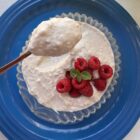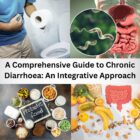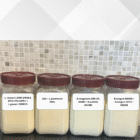Functional Medicine Approach for H. Pylori
Helicobacter pylori (H. pylori) infects nearly 50% of the global population, making it one of the most widespread bacterial infections. This spiral-shaped bacterium burrows into the stomach lining, triggering chronic inflammation that leads to gastritis, peptic ulcers, and even gastric cancer, which accounts for over 700,000 deaths annually. Standard antibiotic treatments fail in nearly 30% of cases due to rising resistance, increasing the risk of relapse. Addressing H. pylori requires more than symptom management—it demands a root-cause approach that strengthens gut health, restores microbial balance, and enhances immune function. A functional medicine strategy offers lasting solutions beyond conventional treatments.
What is Helicobacter Pylori?
Helicobacter pylori (H. pylori) is a gram-negative, spiral-shaped bacterium that colonizes the stomach lining, surviving in its acidic environment by producing urease, an enzyme that neutralizes stomach acid. This bacterium spreads through contaminated food, water, and direct human contact, often infecting individuals in childhood. Nearly 50% of the global population harbors H. pylori, though many remain asymptomatic. In some cases, it triggers chronic inflammation, gastritis, peptic ulcers, and even gastric cancer. The World Health Organization classifies H. pylori as a Group 1 carcinogen due to its strong link to gastric malignancies, highlighting the need for early detection and intervention.
Helicobacter Pylori and Its Connection to Other Diseases
Helicobacter pylori is not just a stomach bacterium—it influences health far beyond the digestive system. This persistent infection affects nearly 50% of the global population and triggers chronic inflammation, damaging the stomach lining. Left untreated, H. pylori sets the stage for ulcers, cancer, and widespread metabolic disruptions. Research links it to autoimmune diseases, neurological disorders, and even cardiovascular risks. Understanding these connections is crucial for effective treatment and long-term health.
1. Gastric and Duodenal Ulcers
- H. pylori weakens the stomach’s protective lining, exposing it to harsh gastric acids.
- Chronic inflammation leads to painful sores in the stomach or duodenum.
2. Gastric Cancer and MALT Lymphoma
- Persistent infection increases the risk of stomach cancer.
- H. pylori-induced inflammation stimulates abnormal cell growth, leading to malignancies.
3. Digestive Disorders
- Disrupts gut microbiota, leading to GERD, bloating, and dysbiosis.
- Affects stomach acid production, worsening digestive symptoms.
4. Autoimmune and Systemic Conditions
- Potential links to rheumatoid arthritis, metabolic syndrome, and neurological disorders.
- Chronic inflammation contributes to immune dysfunction and systemic health issues.
H. pylori infection is a major cause of peptic ulcers, chronic gastritis, hypochlorhydria, and a risk factor for gastric cancer. Successful eradication of H. pylori greatly reduces ulcer recurrence, with a lower rate of recurrence in patients who have undergone eradication therapy. Conventional eradication therapy includes antibiotics and proton pump inhibitors, though some regimens have a failure rate of 20% or more. Research into alternative methods for eradication is ongoing, but no consistently effective treatment has been identified. However, adjunctive therapies like a low-nickel diet, N-acetylcysteine, and possibly vitamin C improve success rates.
Causes & Risk Factors of Helicobacter Pylori Infection
H. Pylori infection affects nearly half of the global population, yet many remain unaware of its presence until symptoms emerge. This spiral-shaped bacterium infiltrates the stomach lining, leading to chronic inflammation and increasing the risk of gastritis, ulcers, and even gastric cancer. Transmission occurs primarily through contaminated food, water, and close human contact. However, several key factors increase susceptibility to infection and complications.
Key Risk Factors:
- Early Childhood Exposure: Infection often begins in childhood, particularly in families with poor sanitation and crowded living conditions.
- NSAID Use: Frequent use of nonsteroidal anti-inflammatory drugs (NSAIDs) weakens the stomach lining, making it more vulnerable.
- Smoking and Alcohol: Both disrupt stomach acid balance and impair the body’s ability to fight infections.
- Chronic Stress and Anxiety: Elevated stress hormones reduce stomach acid, allowing H. pylori to thrive.
- Systemic Inflammation: Conditions like Crohn’s disease and autoimmunity create an environment where H. pylori flourishes.
Signs & Symptoms of H. Pylori Infection
H. pylori silently infects millions worldwide, often lurking in the stomach for years before triggering noticeable symptoms. This resilient bacterium disrupts digestion, weakens the stomach lining, and fuels chronic inflammation. Early detection is crucial, as prolonged infection leads to severe complications like ulcers, anemia, and gastrointestinal bleeding. Recognizing the warning signs helps in timely intervention and gut healing.
Key Symptoms:
- Indigestion, bloating, acid reflux, and belching.
- Nausea and morning sickness.
- Gastric pain worsened by eating.
- Unpleasant taste in the mouth.
- Unexplained weight loss, anemia, or severe gastrointestinal bleeding.

Testing for Helicobacter Pylori
Accurate diagnosis is essential for effective treatment. Several reliable methods detect H. pylori and assess its impact on the stomach lining.
Key Testing Methods:
- Urease Breath Test – A non-invasive test that detects ammonia produced by Helicobacter pylori. The patient drinks a urea solution labeled with carbon isotopes, and if H. pylori is present, the breakdown releases carbon dioxide, which is measured in the breath.
- Stool Test – Identifies bacterial antigens in stool samples. This test confirms active infection and is commonly used for initial diagnosis and post-treatment monitoring.
- Gastroscopy & Biopsy – A small camera inserted through the throat examines the stomach lining. A biopsy sample is taken to check for H. pylori, inflammation, or ulceration.
- Barium Swallow X-ray – A contrast X-ray procedure that highlights abnormalities in the upper digestive tract. It helps detect structural changes linked to long-term H. pylori infection.
- Serum IgG Antibody Test – Measures antibodies against H. pylori in the blood, indicating past or current infection. However, it cannot distinguish between active and previous infections, limiting its use for treatment monitoring.
-
PCR Testing – A molecular diagnostic test that identifies H. pylori DNA, including resistance genes and virulence factors like CagA and VacA. It helps guide personalized treatment by detecting antibiotic-resistant strains.
Functional Medicine Protocol for Helicobacter Pylori Eradication
Core Supplements and Natural Antimicrobial Treatment
Eliminating Helicobacter pylori requires a natural approach that targets the bacteria while supporting gut healing. Functional medicine emphasizes natural antimicrobials and gut-strengthening compounds to restore balance.
- Mastic Gum – A resin with antibacterial properties that reduces H. pylori levels and promotes stomach lining repair.
- Sulforaphane (Broccoli Sprouts) – A powerful antioxidant that supports detoxification and enhances glutathione production, protecting gastric tissue.
- Antimicrobial Herbs:
- Nigella sativa (Black seed oil) – Exhibits strong antibacterial effects against H. pylori.
- Peppermint oil – Aids digestion and reduces bacterial overgrowth.
- Dandelion, ginger, and meadowsweet – Help reduce inflammation and support gut health.
- Cabbage Juice: High in glutamine, it supports mucosal repair and promotes gut healing.
- Licorice (DGL): Soothes the stomach lining, reduces inflammation, and aids in ulcer healing.
- Zinc Carnosine: Strengthens the gastric lining and accelerates gut healing.
- Mastic Gum & Berberine: Powerful natural antimicrobials that help inhibit H. pylori growth.
- Curcumin & N-Acetylcysteine (NAC): Reduce bacterial overgrowth, combat inflammation, and support detoxification
- Green Tea, Garlic, Olive Oil, Cranberry: Contain potent antibacterial compounds that naturally inhibit H. pylori and support digestive health.
Strengthening the Gastric Lining
Protecting and healing the stomach lining is essential for long-term relief from H. pylori-related damage. Strengthening the mucosal barrier reduces inflammation, promotes tissue repair, and prevents further irritation.
- Licorice Root: A potent anti-inflammatory compound that soothes the stomach lining, enhances mucus production, and protects against ulcers.
- Slippery Elm and Marshmallow Root: A comprehensive formula containing botanical extracts like slippery elm and marshmallow root, which coat and repair the gastric lining, reducing irritation and supporting overall digestive health.
- Zinc – Zinc, particularly in the form of zinc carnosine, plays a crucial role in strengthening the gastric lining by promoting mucosal healing and reducing inflammation caused by H. pylori. It helps maintain the integrity of the stomach lining, enhances tissue repair, and may reduce the bacterial load, making it a valuable supplement in H. pylori management.
- Cabbage – Cabbage is rich in vitamin U (S-methylmethionine), which has been shown to support gastric mucosal healing and protect against ulcers. Fresh cabbage juice has natural anti-inflammatory and antibacterial properties, making it beneficial for soothing the stomach lining and potentially inhibiting H. pylori growth.
Additional Supplementations for Helicobacter Pylori
-
Pyloricil: A combination of mastic gum, bismuth, zinc carnosine, and berberine that supports gut healing and fights H. pylori naturally.
-
Lactoferrin: Enhances immune function, reduces bacterial colonization, and improves overall gut health.
-
N-Acetylcysteine (NAC): Breaks down bacterial biofilms, making H. pylori more susceptible to treatment while supporting detoxification.
Restoring Microbiome and Supporting Immunity
A balanced gut microbiome and a strong immune system play a critical role in preventing H. pylori recurrence and promoting digestive health. Replenishing beneficial bacteria and strengthening immune defenses help maintain long-term gut stability.
- Probiotic Therapy – High-potency strains of Lactobacillus and Bifidobacterium restore microbial balance, inhibit H. pylori overgrowth, and improve digestion.
- Medicinal Mushrooms – Cordyceps, Coriolus, and Reishi boost immune function, reduce inflammation, and enhance gut resilience.
- Zinc and Vitamin C – Essential nutrients for immune strength, tissue healing, and reducing oxidative stress, aiding in the recovery of the stomach lining.
Probiotics for Helicobacter Pylori
Probiotics play a crucial role in supporting gut health during Helicobacter pylori treatment. Specific strains of Lactobacillus and Bifidobacterium help balance the microbiome, reduce inflammation, and enhance treatment effectiveness. When combined with standard therapy, probiotics help improve eradication rates while minimizing antibiotic-related side effects.
How Probiotics Help:
- Improved Efficacy: Studies show that probiotics enhance H. pylori eradication and prevent antibiotic-associated diarrhea.
- Gut Microbiome Balance: Probiotics restore beneficial bacteria disrupted by antibiotics.
- Inflammation Control: Certain strains reduce gastric inflammation, promoting faster healing and symptom relief.
Best Probiotic Strains for Helicobacter pylori Treatment and Their Benefits
Probiotics play a crucial role in supporting H. pylori treatment by improving eradication rates, reducing side effects, and restoring gut balance. Different strains offer specific benefits for gut health and symptom relief.
- Lactobacillus reuteri DSM 17648 (found in PyloGuard®)
- Specifically binds to H. pylori, aggregating and reducing its adhesion to the stomach lining.
- Supports healthy gastric microbiota balance without affecting beneficial flora.
- Helps reduce bacterial load and may lower side effects of conventional H. pylori therapy.
- Lactobacillus acidophilus LA5 & Bifidobacterium lactis Bb12
- Improve gut mucosal immunity and may suppress H. pylori colonisation (Wang et al., 2004).
- Help maintain intestinal balance during antibiotic therapy.
- It may reduce gastrointestinal side effects like diarrhoea during eradication treatment.
- Lactobacillus acidophilus NAS strain
- Shown to inhibit H. pylori growth in vitro and possibly in vivo.
- Supports mucosal defence by producing antimicrobial substances.
- Promotes a healthier gastric environment that discourages H. pylori persistence.
- Lactobacillus reuteri ATCC 55730 (SD2112)
- Reduces H. pylori load and suppresses inflammation in the gastric mucosa.
- Produces reuterin, an antimicrobial compound that inhibits H. pylori.
- Enhances eradication rates when combined with standard triple therapy.
- Saccharomyces boulardii CNCM I-745
- Significantly reduces side effects (like diarrhoea) associated with H. pylori eradication therapy.
- Effective in both adults and children; improves treatment compliance.
- May delay the onset and shorten the duration of antibiotic-associated diarrhoea.
Supplements for Children for Helicobacter pylori
-
Probiotics: Lactobacillus reuteri, L. rhamnosus, Bifidobacterium bifidum, and Saccharomyces boulardii help balance gut flora, reduce antibiotic side effects, and support immunity.
-
Mastic Gum (Low Dose): A natural antimicrobial that may help suppress H. pylori, available in chewable or powder form for children.
-
Deglycyrrhizinated Licorice (DGL): Soothes the stomach lining and reduces inflammation, available as chewable tablets.
-
Zinc Carnosine: Supports gut healing and strengthens stomach lining, available in child-friendly formulations.
-
Lactoferrin: Enhances immune response and may inhibit H. pylori growth.
-
N-Acetylcysteine (NAC): Helps break down bacterial biofilms and improve treatment effectiveness (use under medical supervision).
Note: Always consult a healthcare provider before giving supplements to children.
Dietary and Lifestyle Recommendations for Helicobacter Pylori
Healing from H. pylori requires targeted dietary changes to reduce irritation, restore gut health, and strengthen immunity. Avoiding trigger foods while incorporating nutrient-rich options accelerates recovery and prevents recurrence.
- Foods to Avoid – Spicy, acidic, and processed foods (vinegar, citrus, coffee), along with alcohol and caffeine, aggravate inflammation and weaken the stomach lining.
- Healing Foods – A fiber-rich, antioxidant-packed diet supports gut repair. Green tea extract and curcumin modulate immunity, while bone broth and aloe vera promote mucosal healing.
- Sulfur-Rich Vegetables & Mucilaginous Herbs – Garlic, onions, and cruciferous vegetables enhance detoxification, while slippery elm and marshmallow root soothe the gut lining
Low-Nickel Diet
H. pylori contains nickel-dependent enzymes like urease and NiFe-hydrogenase, which help it survive in the acidic stomach environment. A low-nickel diet significantly increases H. pylori eradication rates when combined with conventional therapy. A randomized controlled trial found a much higher eradication rate in patients on a low-nickel diet (84.6%) compared to those on a standard diet (46.2%).
Broccoli Sprouts
Sulforaphane, an isothiocyanate found in broccoli sprouts, inhibits the growth of H. pylori in vitro. Broccoli sprouts are particularly potent due to their high glucosinolate content. An uncontrolled trial demonstrated that consuming 7–28 g of broccoli sprouts twice a day for 7 days eradicated H. pylori in some patients, with 78% showing negative stool antigen tests at the end of the treatment period. While promising, additional research is needed to confirm the long-term effectiveness of broccoli sprouts.

Recommendations and Tips for Supplementation
- Diet: Chew food thoroughly and investigate food allergies or reactive hypoglycemia in selected cases. Consider a high-fiber diet to support gut health.
- Deglycyrrhizinated Licorice (DGL): For acute treatment, chew 2 tablets (380 mg per tablet) 3–4 times per day on an empty stomach, 20 minutes before meals. Lower doses may be used for maintenance.
- Glutamine: 500–1,000 mg 2–3 times per day.
- Vitamin A: 25,000–75,000 IU/day for 2–4 weeks for active ulcer treatment. Vitamin A may also help prevent ulcers from severe physiological stress.
- Zinc: 25–30 mg (as zinc picolinate or zinc citrate) 1–3 times per day for several weeks, followed by lower doses or discontinuation for maintenance.
- Vitamin C (Buffered): 500 mg/day for prevention and 500–1,500 mg/day for treatment.
N-Acetylcysteine (NAC)
H. pylori produces a biofilm that protects it from antibiotics, making eradication difficult. NAC prevents biofilm formation and degrade existing biofilms. Clinical trials have demonstrated that NAC supplementation increases the success rate of conventional eradication therapy. One study found that 65% of patients taking NAC achieved eradication compared to only 20% in the control group.
Lifestyle Modifications for Gut Health
A holistic approach to gut health goes beyond diet and supplements. Lifestyle habits influence digestion, immunity, and microbial balance, making them essential for long-term healing.
- Stress Reduction Techniques – Chronic stress disrupts digestion and weakens immunity. Meditation, yoga, and deep breathing lower stress hormones, promoting gut repair.
- Optimizing Meal Hygiene – Eating smaller, frequent meals reduces digestive strain, preventing bloating and acid reflux.
- Adequate Hydration – Drinking too much liquid with meals dilutes stomach acid, impairing digestion. Hydrate between meals instead.
- Exercise & Sleep Optimization – Regular movement and quality sleep regulate gut bacteria, improve digestion, and enhance immune resilience.
Post-Treatment and Maintenance for Helicobacter Pylori
Eliminating H. pylori is only the first step; maintaining gut health ensures long-term protection and prevents reinfection.
- Confirm Eradication – Follow-up testing, such as a breath or stool test, ensures complete bacterial clearance.
- Support Ongoing Gut Health – Regular consumption of broccoli sprouts, probiotic-rich foods, and gut-healing nutrients like zinc and glutamine helps maintain a balanced microbiome.
- Address Intensive Treatment Effects – If radiation or strong medications were used, focus on repairing leaky gut and reducing oxidative stress with antioxidants, medicinal mushrooms, and anti-inflammatory nutrients like curcumin and omega-3s.
Conclusion
Effectively managing H. pylori goes beyond simply eradicating the bacteria; it requires a comprehensive approach to restore and maintain gut health. Functional medicine emphasizes addressing the root causes through targeted nutrition, lifestyle modifications, and natural antimicrobials while integrating pharmaceutical treatments when necessary. Healing the gut lining, balancing the microbiome, and reducing inflammation prevent recurrence and long-term complications. A tailored approach ensures sustainable recovery, improved digestion, and overall well-being. Prioritizing gut health through mindful choices.
References
- https://pmc.ncbi.nlm.nih.gov/articles/PMC4848239/
- https://www.tandfonline.com/doi/full/10.1080/1040841X.2021.1975643
- https://www.sciencedirect.com/topics/medicine-and-dentistry/helicobacter-pylori
- https://pmc.ncbi.nlm.nih.gov/articles/PMC9338786/
- https://www.sciencedirect.com/science/article/abs/pii/S1756464617302712
- https://www.tandfonline.com/doi/full/10.1080/1040841X.2021.1975643′
- https://pmc.ncbi.nlm.nih.gov/articles/PMC8512130/









